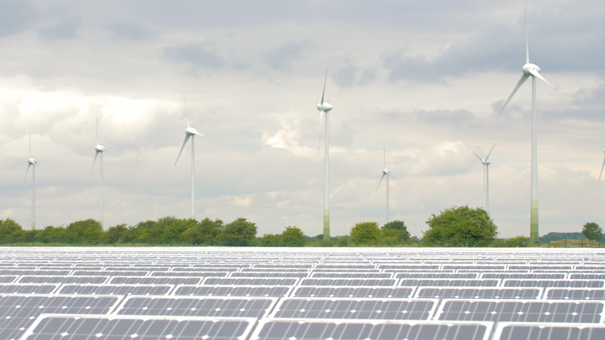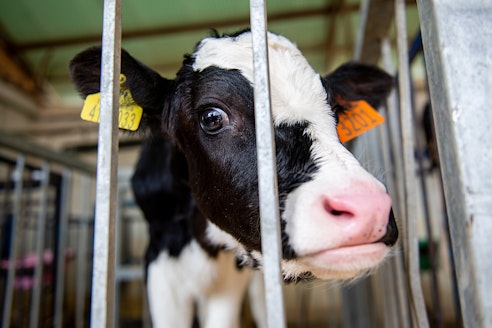
Green Energy
Jobs, growth and energy independence start with green power
February 19, 2026

November 06, 2025By: Team Dale
No rain means no grass, no grass means no cows. That’s the blunt reality facing UK farmers right now. After a record-breaking dry spring turned into a record-breaking hot summer, the cracks in the livestock industry are impossible to ignore. Cows are chewing through expensive winter feed months too early, and it’s pushing farmers out of business. In the past year alone, nearly 200 dairy farmers have left the industry, a number that’s only set to rise as climate chaos bites harder
And it’s not just dairy. Beef farmers are caught in the same squeeze. Since 2020, farmgate beef prices have more than doubled – up 107% – while retail prices are up 52%. Butter tells the same story: a 250g pack that cost £1.77 in 2020 now goes for £2.43. These are not isolated blips; they’re signs of an industry under existential threat.
The future looks worse. A new report shows more than half of the world’s 40 biggest meat and dairy producers could see their profits wiped out by 2030 as global heating accelerates. In the UK, farms are also battling worker shortages, leaving cows unmilked and abattoirs understaffed. Pile on the regular outbreaks of infectious disease, and you’ve got an industry on life support.
Here’s the kicker: the "solution" being offered is to intensify production. More animals crammed onto less land. Which means more emissions, more water use, more soil degradation – and even greater cruelty. We’ve just seen the latest RSPCA Assured scandal expose what happens when animal welfare is treated like a PR exercise. So, the system doubles down on the very thing that caused the crisis. That’s madness.
Meanwhile, there are real alternatives. Plant proteins – lentils, tofu, chickpeas – are cheaper, healthier, and climate-proof. The UK plant protein market is growing steadily at 4.24% a year, while meat growth limps along at 1.3%, driven by rising prices, not actual demand. Put simply: more people want plants, fewer want meat.
And yet, instead of backing this shift, our government is still trying to prop up a dying industry. They point to environmental land schemes as proof of support, but farmers themselves aren’t buying it. Worse still, ministers are now slashing funding for nature-friendly farming – a move that helps nobody but agribusiness.
So what should we do instead? It starts with honesty. End the false advertising that tricks people into thinking their food is cruelty-free. Give schools and hospitals the freedom to serve plant-based meals. Set higher animal welfare standards post-Brexit, so we don’t get undercut by imports of cheap, factory-farmed meat. And most importantly, stop funnelling public money into diets that are killing us, killing animals, and killing the planet.
There’s already undeniable energy building behind change. Our petition Promote plant‑based foods over meat and dairy for a healthier Britain had over 30,000 signatures.It demands that the government actively encourage consumption of fruits, vegetables, wholegrains and legumes , not subsidise campaigns that prop up meat and dairy. The fact that it’s coming from the public, not lobbyists, speaks volumes.
So far, the government’s response has been the same old tired line: “The Eatwell Guide recommends most of your diet should be plant‑based - but, hey, meat and dairy can still be part of a balanced meal.” This mealy-mouthed response isn't good enough, we need action, and fast. Especially when the Climate Change Committee recommends slashing dairy consumption by 20% by 2035 and meat by 35% by 2050.
The choice is crystal clear. We either carry on pouring billions into a faltering industry… or we back a food system that works for people, animals, and the planet. It’s not about nostalgia for “the great British farm.” It’s about survival.